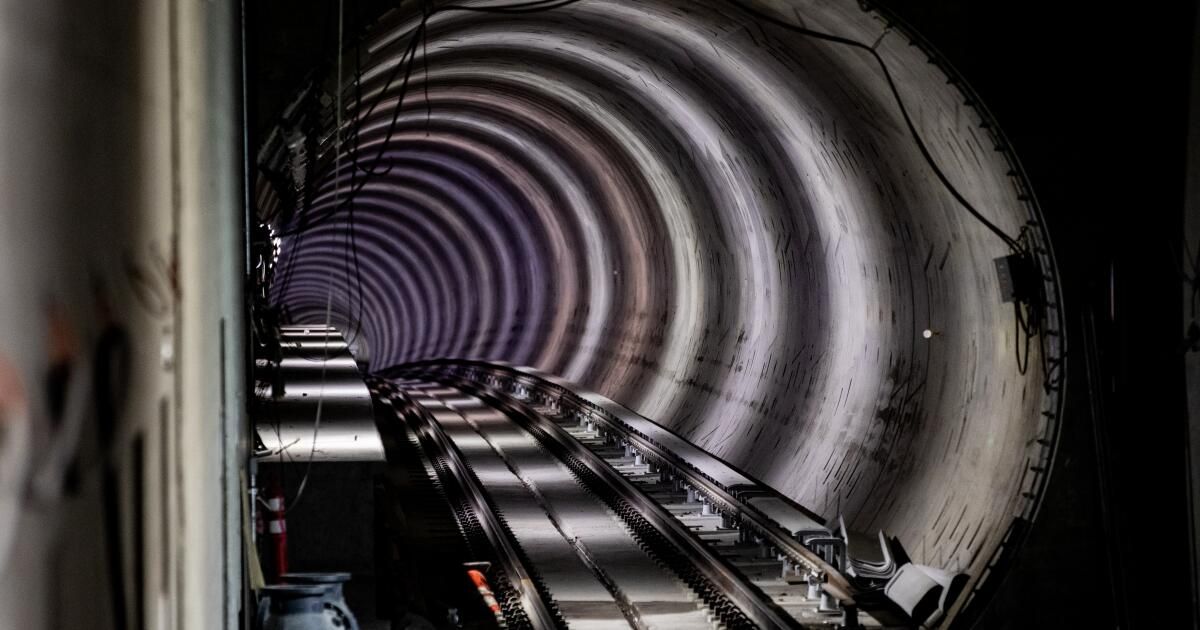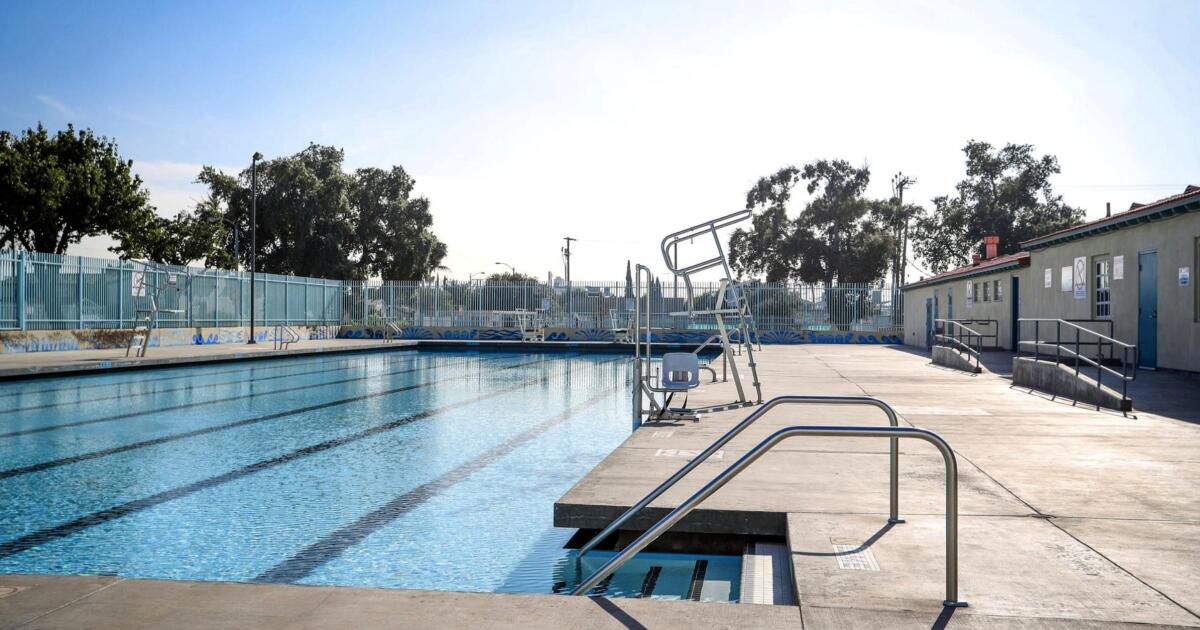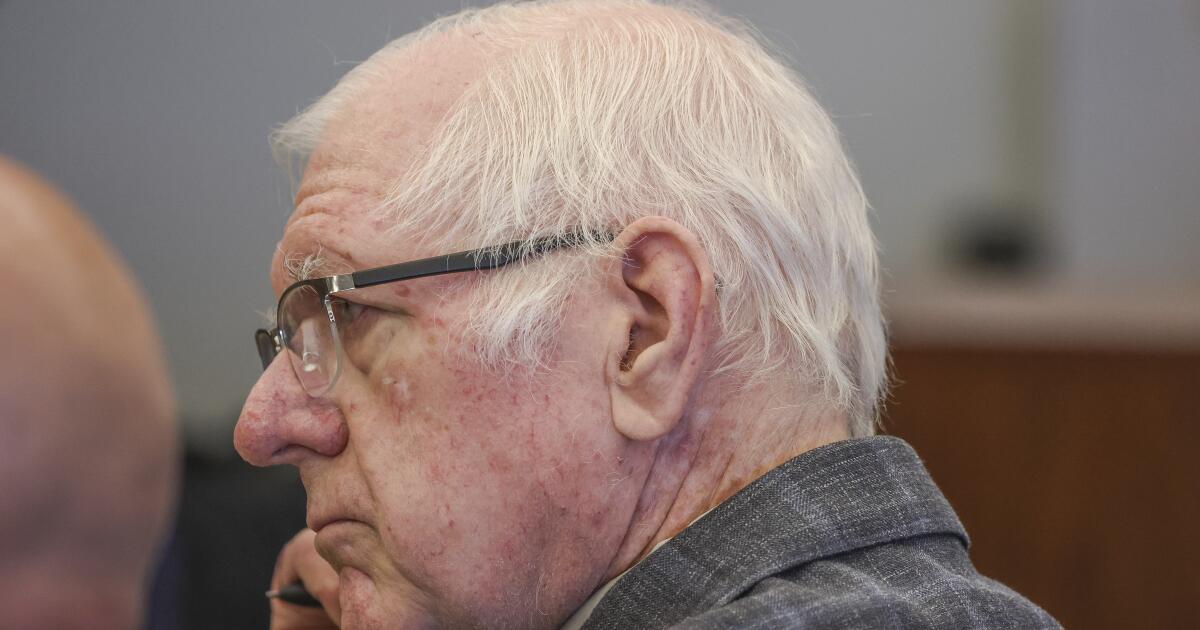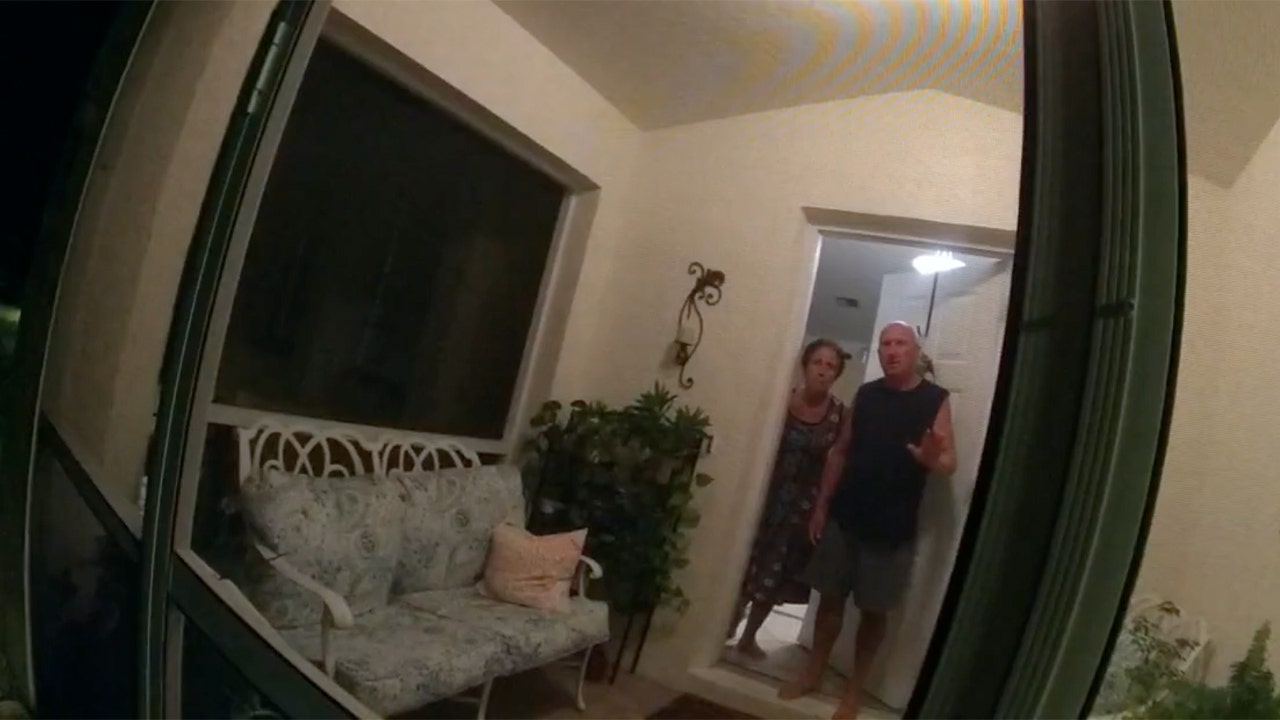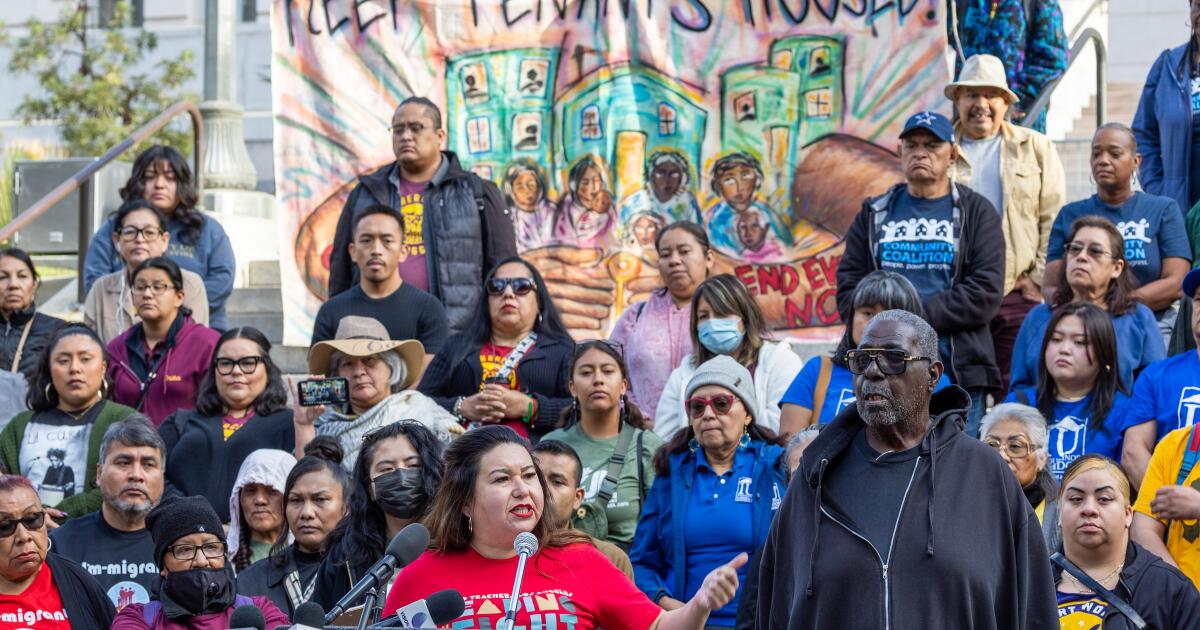Worker advocates are suing to force the Los Angeles County Metropolitan Transportation Authority to rebid a $730 million order for subway cars intended to replace much of its aging subway fleet and run on the D Line extension to West Los Angeles, which is set to fully open before the 2028 Olympics.
A delay in getting new carriages could set back the Metro's expansion and leave passengers stuck in older, dirtier carriages as hundreds of thousands of people flock to the region for the Games.
The research and advocacy organization Jobs to Move America contends that when Metro officials awarded South Korea’s Hyundai Rotem, part of Hyundai Motor Group, a contract in January to build at least 182 rail cars, they omitted required provisions that would have forced them to detail workers’ wages and benefits and to hire “disadvantaged workers,” including homeless people, single parents, veterans and others who have had difficulty entering the workforce.
Those Metro contract provisions were agreed to in 2022 as part of a new manufacturing policy aimed at providing well-paying blue-collar jobs and include strict reporting requirements and penalties for noncompliance.
When Metro learned of the lapse, the agency allowed Hyundai to modify the contract, rather than rebid it as required by law, according to the lawsuit filed Monday in Los Angeles Superior Court.
“It’s become clear to us that state and federal competitive bidding laws have been violated,” said Madeline Janis, co-executive director of Jobs to Move America. “This is a very important contract, and as Angelenos, we should expect meaningful, enforceable commitments to quality work in exchange for three-quarters of a billion dollars.”
The group, whose board members represent some of the nation’s largest unions, is asking the court to order Metro to rebid the contract, noting that the other companies’ bids were competitive. Had the agency followed its own policy, the group contends, another bidder could have won.
Before the lawsuit was filed, Metro spokesman Patrick Chandler said in an emailed statement that the agency was still reviewing the allegations but found several of Jobs to Move America's claims to be “inaccurate and based on incomplete information.”
“Hyundai Rotem is on track to deliver not only good-paying jobs and benefits, and capital investment in manufacturing capabilities for the benefit of Los Angeles County, but also to deliver rail cars that will transport athletes and attendees to the 2028 Olympic Games in Los Angeles,” he said.
The roots of this policy go back to a long-running legal battle with another Metro contractor, New Flyer. Jobs to Move America accused the company, one of the largest bus manufacturers in the country, of misreporting workers’ compensation at its factories. The suit was eventually settled. New Flyer did not admit any wrongdoing, and Metro’s board subsequently approved the new policy for projects over $50 million.
Jobs to Move America closely followed the Hyundai project that was approved in January. Janis said it was clear from the beginning that Metro was not following its own policy.
“Metro asked for an attempt to resolve the problem,” he said. “They recognized that it was a complicated situation.”
In July, Hyundai amended the contract, telling Metro in a letter that it is “continuing to assess the implications of the changes on pricing,” raising the specter that the price could rise further.
Jobs to Move America views the lawsuit as an effort to bring transparency to the process and force the agency to comply with its own policy aimed at ensuring that billions of federal and state dollars spent on infrastructure pay off for workers.
“Hyundai is America’s entry-level vehicle manufacturer and we have done everything we can to alert LA Metro about this issue,” Janis said.
In May, the U.S. Department of Labor sued Hyundai after discovering that a 13-year-old boy was working up to 60 hours a week on heavy machinery on an assembly line that made car parts for SMART Alabama, a subcontractor in which the Korean giant owns a majority stake. The suit named Hyundai, SMART and a staffing service, and claimed they were jointly liable for violations of child labor law.
“We had hoped that Metro would be as concerned as we were and would therefore hold Hyundai to strict labor standards when implementing this important contract,” Janis said.
In a statement Hyundai released after the lawsuit, it said it “took immediate action upon learning of alleged violations of child labor law by independent suppliers” and that its suppliers have terminated their relationships with the third-party staffing agencies.
Labor, construction and other interests have often clashed over these big-money contracts at the $9 billion agency. Metro and its rail construction have long been seen as a source of regional job creation that can stimulate the economy and help boost a company's bottom line.
Former Los Angeles Mayor Tom Bradley, who envisioned the rail system in the 1970s, saw its construction as comparable to New Deal programs, said Ethan Elkind, a climate policy researcher at UC Berkeley and author of “Railtown: The Fight for the Los Angeles Metro Rail and the Future of the City.”
“Union politics has always been a major factor in driving rail development,” Elkind said. And union members have helped push through sales tax measures that spurred rail expansion in Los Angeles.
But the cost of building the rail has created tensions on the Metro board of directors, which includes the mayor, members of the county Board of Supervisors and other local officials and leaders. The upcoming Olympics have added new pressures on schedules. Larger projects can take years to complete, and bidding on these complex contracts can consume precious time.
Earlier this year, Metro approved a $66 million contract to upgrade its existing contact-based payment program with San Diego-based Cubic Transportation Systems. The agency did not publicly solicit bids for the contract, saying the system was too integrated into Metro to change direction, especially with the 2026 Games and World Cup looming. Instead, it modified a 24-year-old contract, said Juan Matute, deputy director of the UCLA Institute of Transportation Studies.
“The downside to this is that Metro can take advantage of compressed delivery times for transportation services and infrastructure to limit contracting options,” Matute said. “With Cubic, it seemed like the agency had risked wasting time to limit the viability of switching to alternatives.”

